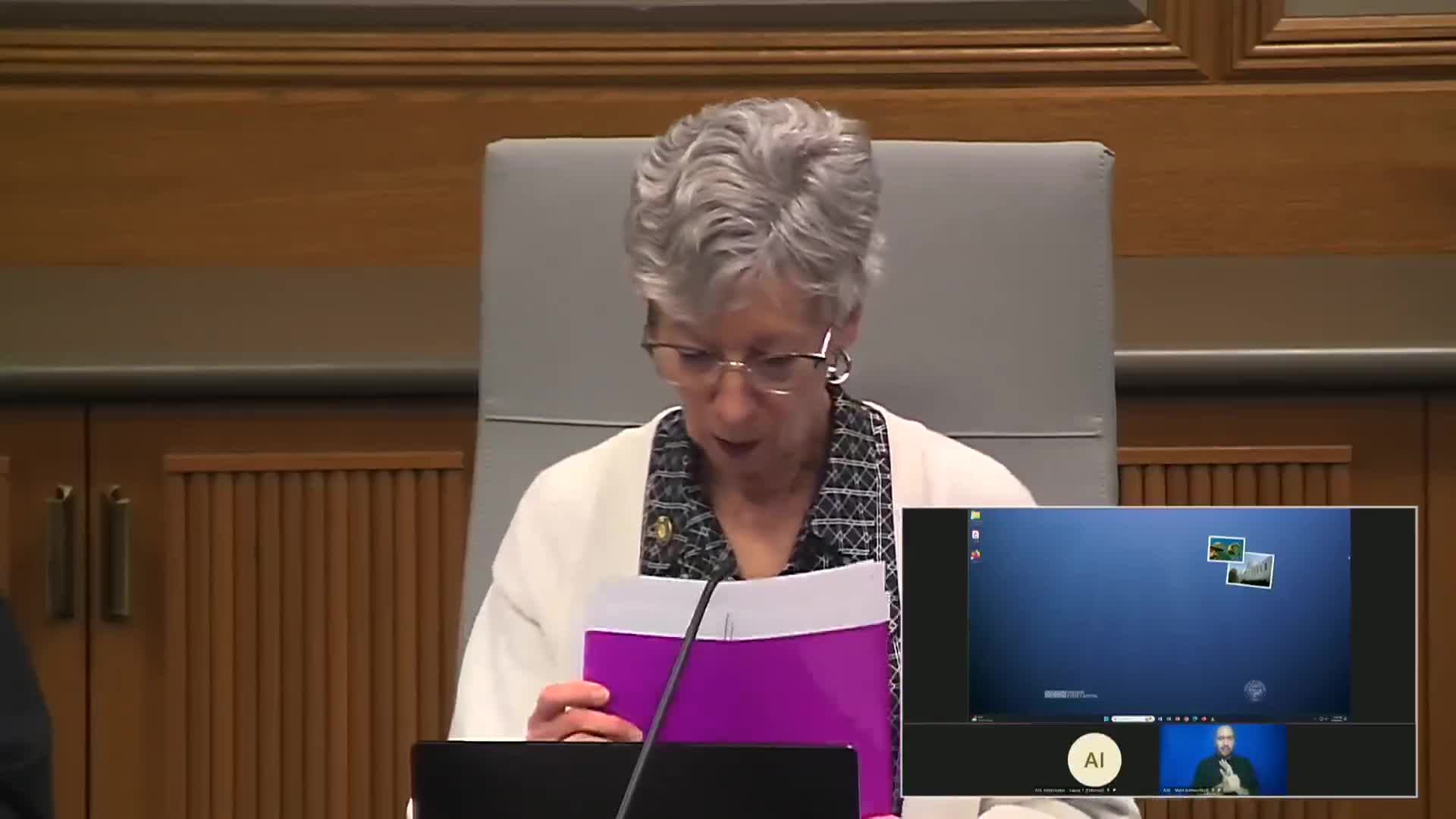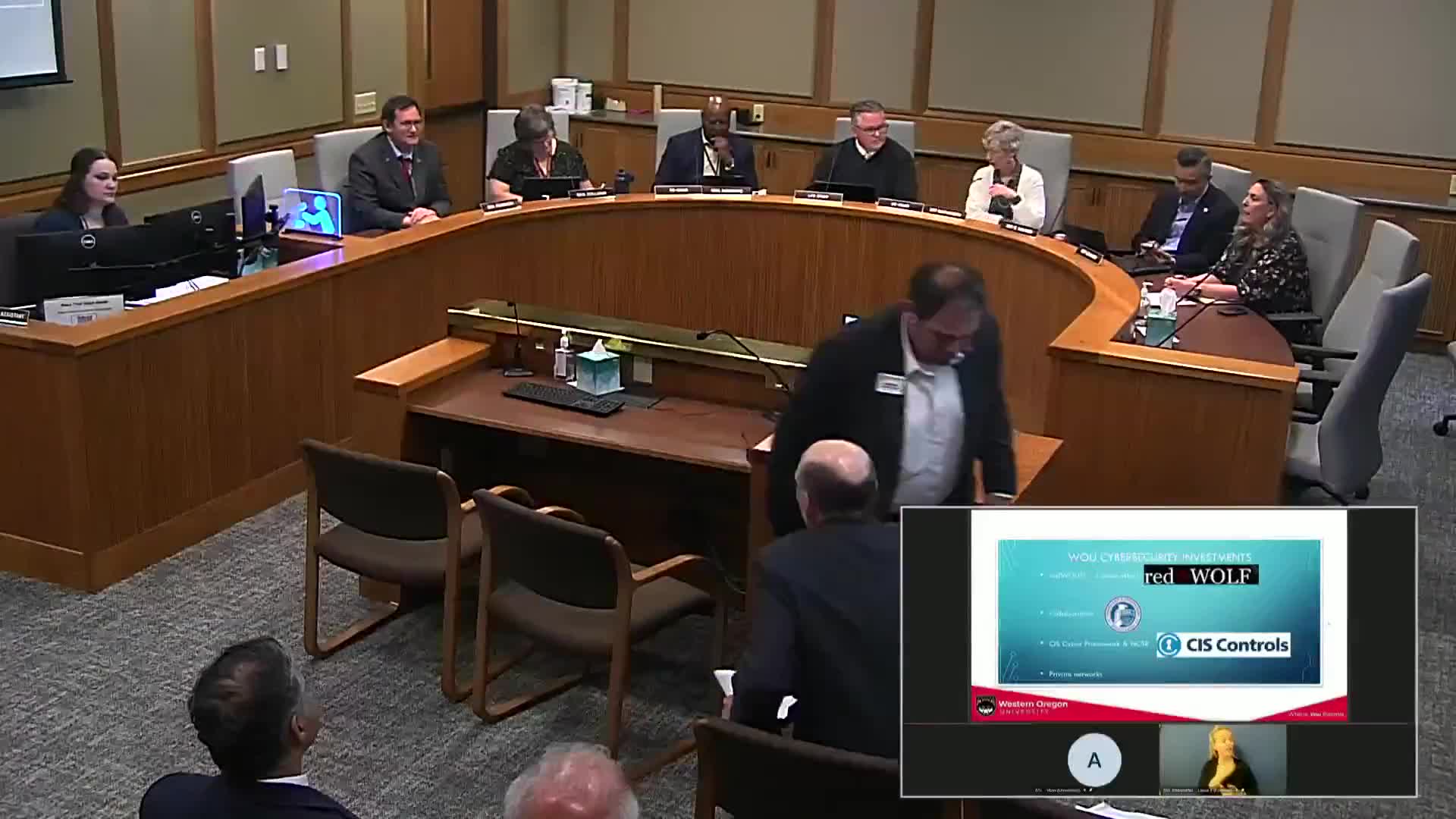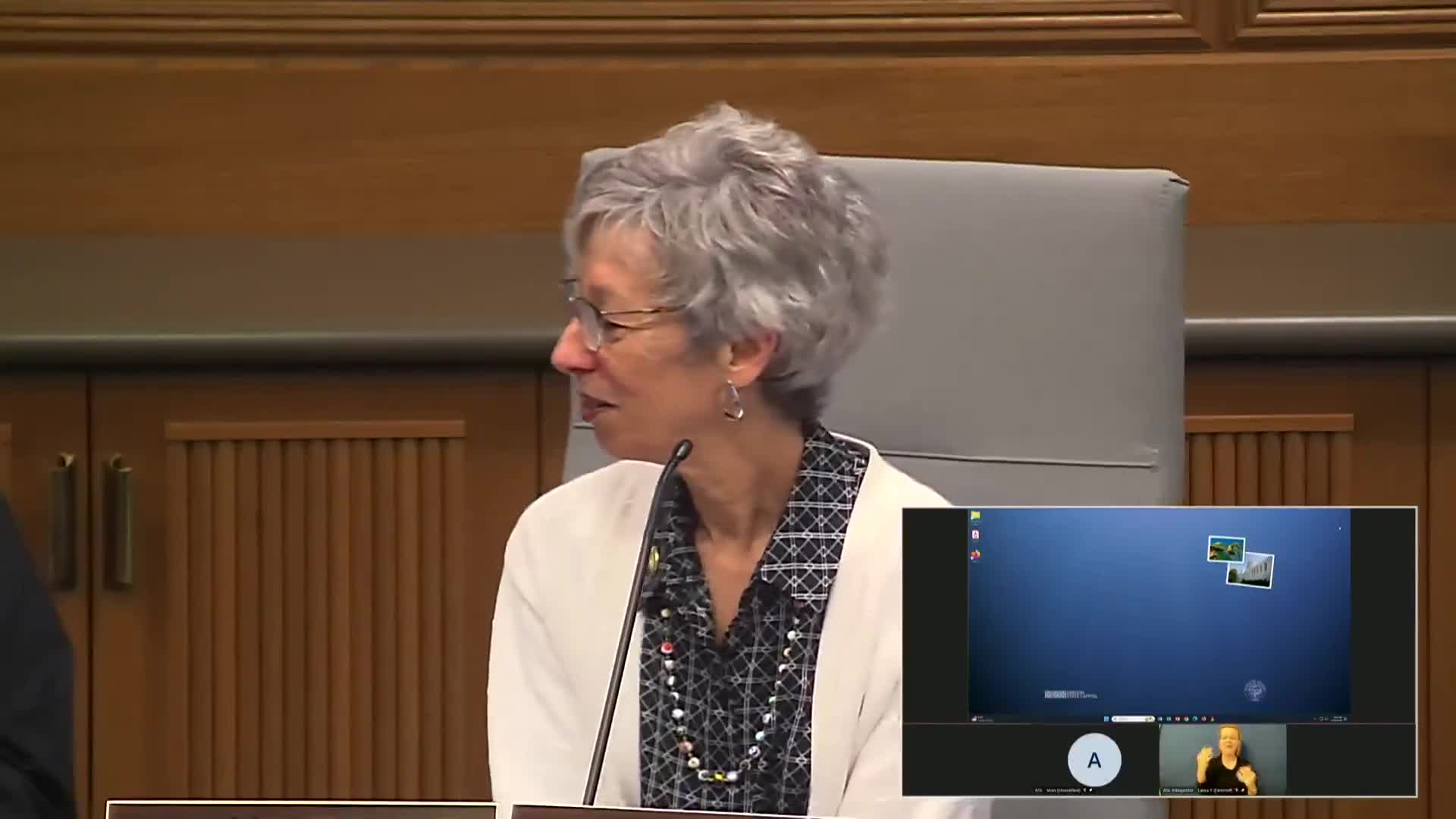Article not found
This article is no longer available. But don't worry—we've gathered other articles that discuss the same topic.

Joint committee adopts amendment to Senate Bill 1090 to require prioritized reporting of executive‑branch IT requests

Oregon universities detail 'teaching SOC' programs that train students and protect local governments

